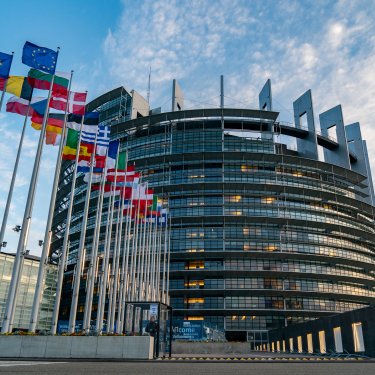European Union: RSF's 7 Recommendations on AI and Information

As a new chapter begins for the European Union (EU), Reporters Without Borders (RSF) welcomes the historic progress already made in regulating digital platforms and artificial intelligence (AI). However, RSF highlights shortcomings in protecting the right to information and unveils seven recommendations on AI in the information space, urging the newly elected parliament and European institutions to adopt them.
The EU is a pioneering leader regulating digital platforms, AI, and promoting the right to reliable information. During the 2019-2024 mandate, the regional body has adopted several landmark laws, including the Digital Services Regulation (DSA), the AI Act and the Media Freedom Act (EMFA).
As the new legislature of the European Parliament begins, it is crucial to continue prioritising the right to reliable information.
RSF is thus presenting the EU with its 7 recommendations for safeguarding an information space dominated by artificial intelligence. These recommendations are divided into three key dimensions: strengthened regulation, more ambitious public support policies and genuine institutional governance in this area.
"Information is one of the areas most seriously threatened by the development of artificial intelligence, if it is not regulated. Surprisingly, it is not considered a ‘high risk’ sector by the AI act. It is also excluded from the 14 ‘strategic sectors’ eligible for EU funding. We urge the EU to address these shortcomings by strengthening the legislative framework and developing ambitious AI public policies and governance in the information space.
RSF's 7 recommendations to the EU on AI and the right to information.
In terms of regulation, RSF supports:
- the implementation of an obligation for AI systems playing a central role in disseminating information to amplify reliable sources;
- the establishment of a liability regime for the creation and dissemination of deepfakes;
- fair compensation for creators whose content is used to train or feed models.
With regard to public support policies, RSF calls on the EU to:
- recognise information as a priority area for the development of trustworthy AI systems;
- massively fund independent research in this field.
In terms of governance, RSF calls on the EU:
- give priority to cooperation over international competition;
- index the means of public regulation to the power of the industry it aims to supervise.
AI and the right to information: a priority area for RSF
RSF's recommendations on AI and the right to information are inspired by various projects and initiatives undertaken by the organisation. In November 2023, RSF, along with 16 international organisations published the Charter of Paris on AI and Journalism, the first global ethical framework to guide media in their use of AI. In partnership with France's largest media federation (Alliance de la Presse d'Information Générale, APIG), RSF is working on developing a reliable language model for journalists: the Spinoza project. Additionally, RSF contributes to the efforts of the Forum on Information and Democracy, which in February 2024 published the report “AI as a Public Good: Ensuring Democratic Control of AI in the Information Space”.
